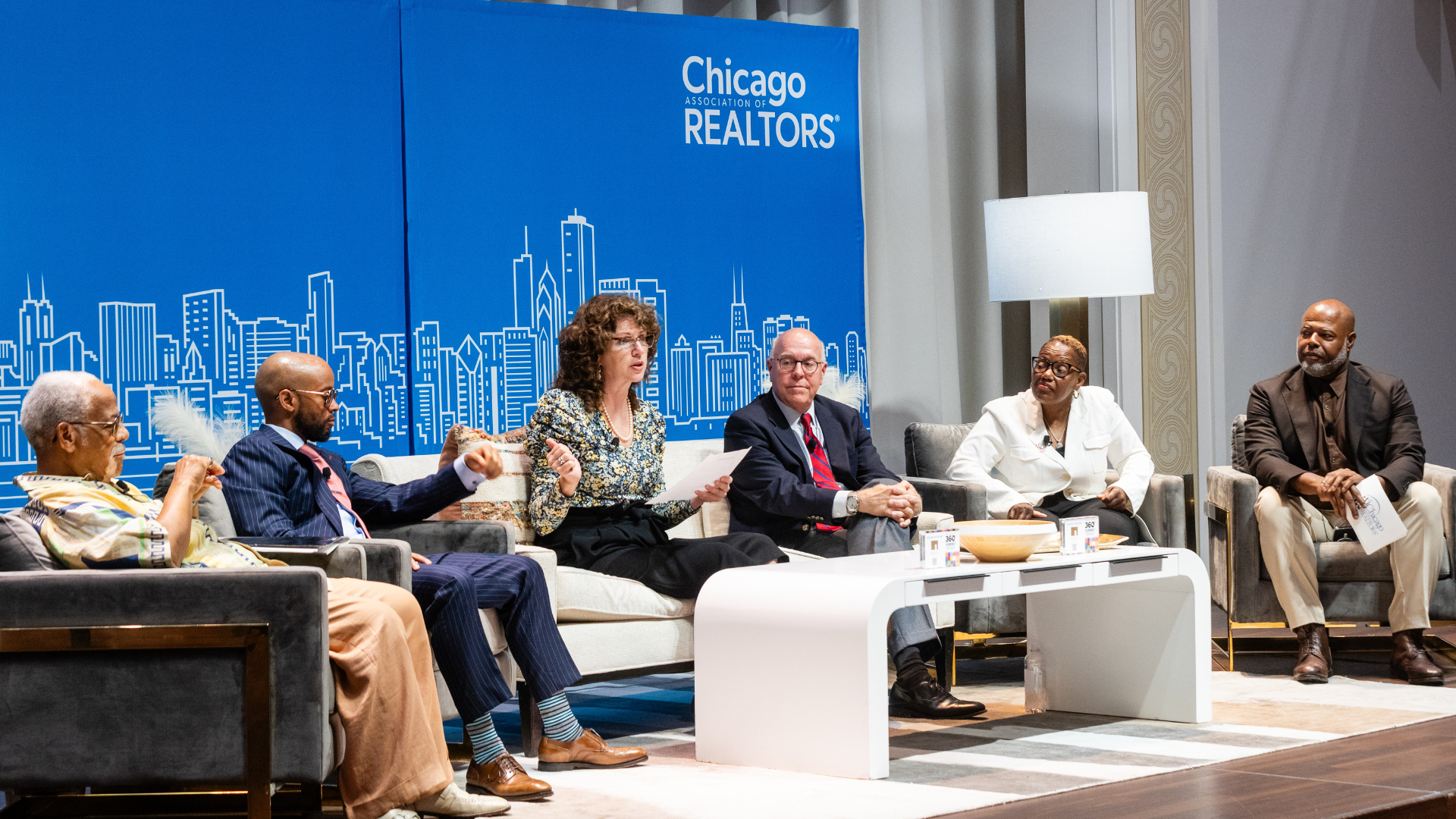During the Chicago REALTORS® 360° Summit, a group of experts gathered to discuss one of the most pressing issues facing the real estate industry today: appraisal bias. As real estate professionals, we’ve all heard the stories and seen the reports. But what’s being done to address this persistent problem that impacts communities all across America?
Moderated by Lutalo McGee, 2024 President-Elect of the Chicago Association of REALTORS®, the panel explored solutions and a path forward. Let’s dive into insights shared during this discussion.
The Appraiser’s Perspective: Reporting, Not Making the Market
Christopher J. Posey, a Certified Real Estate Appraiser, emphasized a crucial point that often gets lost in the conversation, “We don’t make the market, we report the market.” This statement underscores the complex role appraisers play. They’re not setting prices, but rather analyzing trends, inspecting properties and providing credible reports based on market data.
Posey highlighted the importance of analysis and transparency in the appraisal process. He advised REALTORS® to be proactive in providing information to appraisers, whether through email or in-person meetings. This collaboration can help ensure that all relevant data is considered in the appraisal process.
Freddie Mac’s Technology and Diversity Initiatives
Scott Reuter, Single Family Chief Appraisal Officer at Freddie Mac, shared three key initiatives aimed at addressing appraisal bias:
- Enhanced screening tools to flag potentially biased language in appraisal reports
- New requirements for lenders to have clear policies on reconsideration of value (ROV)
- The Appraiser Diversity Initiative, aimed at increasing diversity within the appraisal profession
These efforts demonstrate their approach to tackling bias, from improving technology to changing industry demographics.
Addressing Historical Context
Karen Freeman-Wilson, President and CEO of the Chicago Urban League, brought a historical perspective to the discussion. She emphasized that current appraisal challenges are rooted in a long history of segregation and undervaluation in minority communities.
Freeman-Wilson stressed the need for a comprehensive approach that goes beyond just appraisals, addressing broader barriers to homeownership and community development. She highlighted the Urban League’s efforts to educate consumers and work with industry partners to drive change.
The Veteran Appraiser’s Call to Action
Frank Williams, a managing broker and appraiser with decades of experience, delivered a powerful message about the need for systemic change. Drawing from his personal experiences facing discrimination within the industry, Williams challenged attendees to question long-standing practices and push for meaningful reform.
He emphasized the importance of understanding neighborhood cycles and the historical context of urban development when conducting appraisals. Williams’ insights served as a reminder that addressing appraisal bias requires not just policy changes, but a fundamental shift in how we think about value in different communities.
Collaboration is Key: The Role of Real Estate Agents
Maureen Sweeney, a real estate appraiser, consultant and educator, highlighted the critical role that real estate agents can play in addressing appraisal bias. She encouraged REALTORS® to be proactive in providing relevant information to appraisers, including:
- Detailed property information
- Recent comparable sales
- Neighborhood improvements or changes that might impact value
Sweeney stressed the importance of documenting these communications, suggesting that REALTORS® email information to create a clear paper trail.







